Kane Burns: How litter pickers helped catch a killer
- Published
How Burns tried to cover up his crime
When a missing person inquiry turned into a hunt for the killer of Mohamed Megherbi, it was to prove one of the most "challenging" investigations undertaken by South Wales Police.
However with the help of a bus driver, litter pickers and an archaeologist, detectives were able to secure the conviction of Kane Burns for manslaughter.
The 26-year-old from Cardiff killed his friend with a sword and burned his body in woods near his home in Llanedeyrn because he insulted his mother.
Yet from the beginning of the investigation, detectives realised this would prove a "difficult" case and while they recruited the help of experts and scientists from across the UK - it was the general public who helped make several "breakthroughs".
How the two men knew each other remains a mystery.
Mr Megherbi said goodbye to his family in Algeria at the age of 14 and headed to France with dreams of becoming a professional footballer. Dream unfulfilled, he moved to London before making his way to Cardiff last year.
Just a few months later, his "skeletonised" remains were found in a shallow grave in woodland in Pentwyn.
Police had been looking for the 24-year-old in connection with a domestic incident involving his girlfriend in Roath in October when their inquiries took a sinister turn.
After checks on his phone records and bank details drew a blank, the missing person inquiry was escalated to a murder hunt.
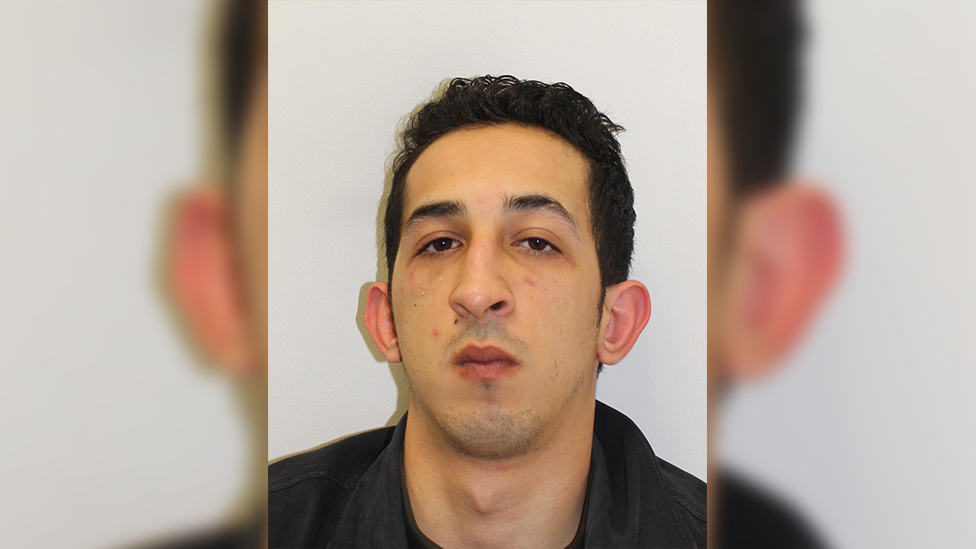
Mohamed Megherbi dreamed of being a footballer
Meanwhile in another part of the city, police following up a separate matter at the time, knocked on the door of Burns' flat on the Pennsylvania estate.
However once inside, eagle-eyed police immediately grew suspicious.
"While in his flat, the officers noticed there had clearly been a clean up operation and could see what they thought to be blood in various locations in the flat," said Det Insp Andrew Miles, of South Wales Police major crimes department.
Forensics tests found the blood was that of Mohamed Megherbi while CCTV footage later showed Burns purchasing mops, cleaning items and paint in the days after Mr Megherbi's death.
The coincidental discovery in the flat was to prove just the first stroke of luck for detectives.
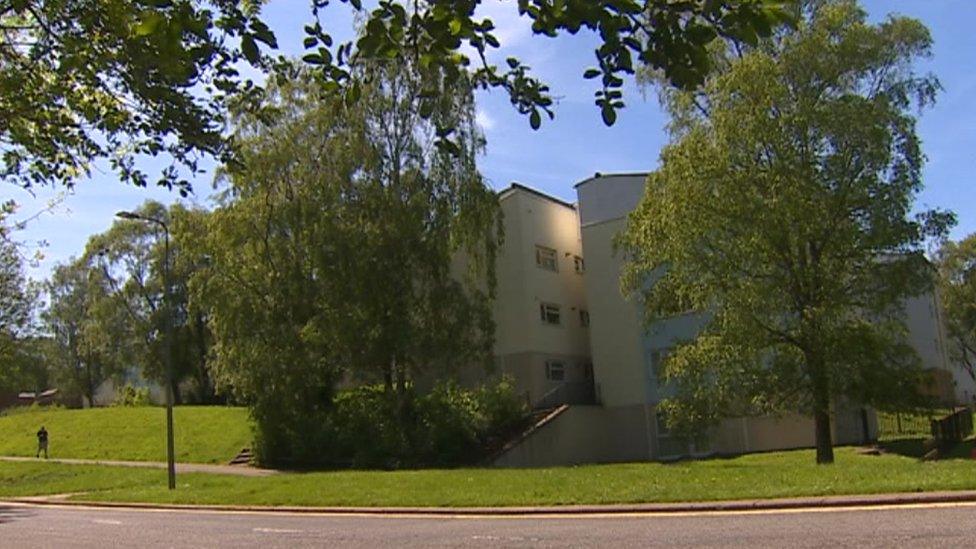
Mr Megherbi sustained catastrophic, fatal head injuries at Burns' flat in the Pennsylvania estate, Cardiff
Mr Megherbi's remains were discovered after a cyclist reported seeing Burns carrying a spade near woodland close to Pentwyn Leisure Centre on 13 October. It was four days after he had died.
The spade, bought by Burns at a local B&Q store, was also later retrieved after it was spotted by a bus driver stuck in traffic on the A48 close by.
"There were a number of breakthroughs during the investigation," said Det Insp Miles.
"While we were making efforts to recover Mr Megherbi's body, the bus driver could see from his raised position within the cabin, the (shovel) which was thrown onto the top of brambles head height that wouldn't have been visible."
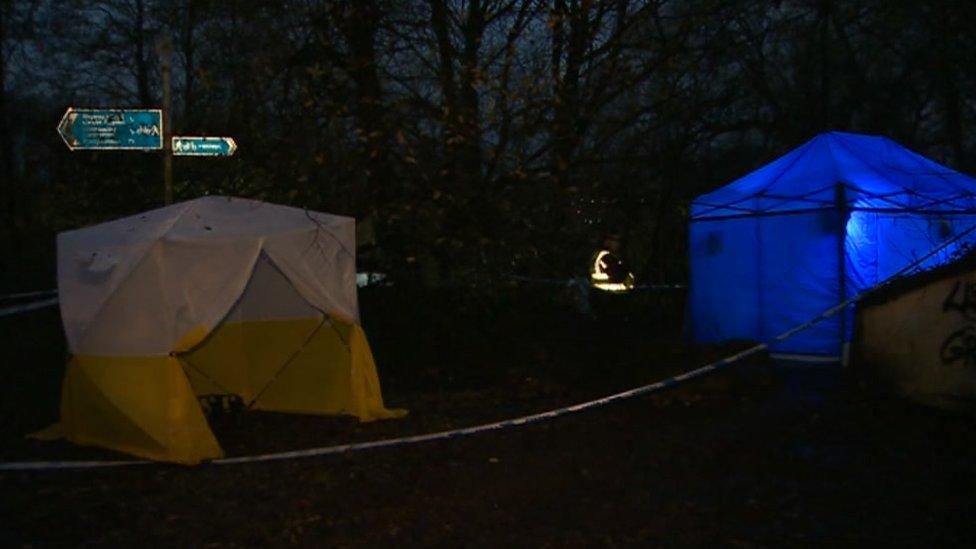
Mr Megherbi's remains were found close to Pentwyn Leisure Centre
Then in January this year, community litter pickers in Llanedeyrn, near to the burial site, made a shocking discovery - a blood-stained samurai sword. It was Mr Megherbi's blood.
Kane refused to answer any questions in eight separate interviews.
While detectives now had a body, a weapon and a suspect, the motive remained elusive until a "key witness" came forward.
"The witness was initially approached by Kane to help dispose of the body," said Det Insp Miles.
"Burns made admissions to this witness and one was that this was over an insult that Mohamed had made in relation to Kane's mother.
"Surprisingly we haven't been able to get to the bottom of the relationship between Kane and Mohamed."
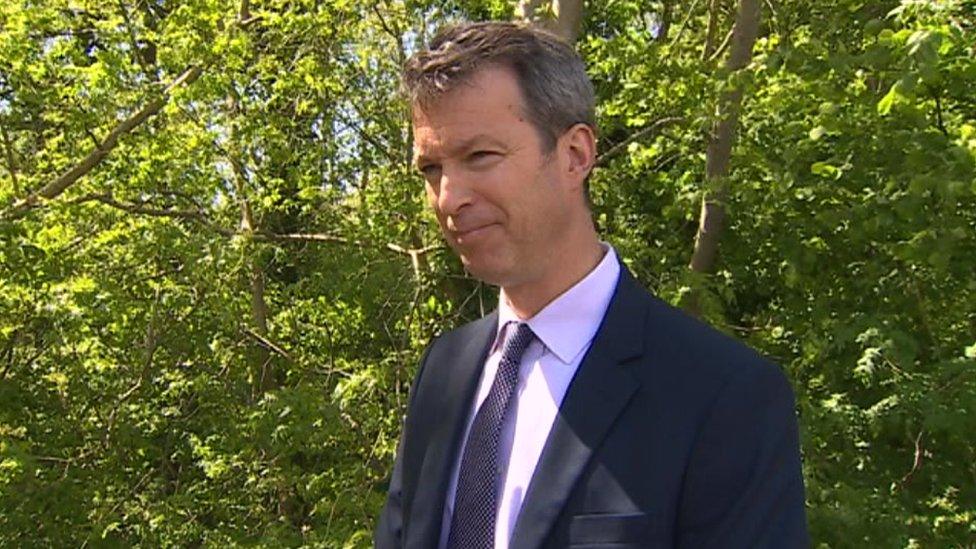
Detectives thanked the local community in Llanedeyrn for helping make several "breakthroughs"
Police drafted in an archaeologist to help with the removal of Mr Megherbi's remains and an anthropologist to study the body as well as soil scientists and DNA experts.
Yet it was also the local community that played a "key role".
"Some of this investigation has been challenging," said Det Insp Miles.
"We cannot underestimate the role of the public in this case. There were a number of key witnesses who short-circuited our work by making phone calls with key information.
"The community spirit in Llanedeyrn seems to have been a willingness to support our investigation and I am grateful for that."
Mr Megherbi's family flew from Algeria to Cardiff for the start of the trial while Burns is now starting a ten and-a-half year sentence for the death of their son.
- Published15 May 2019
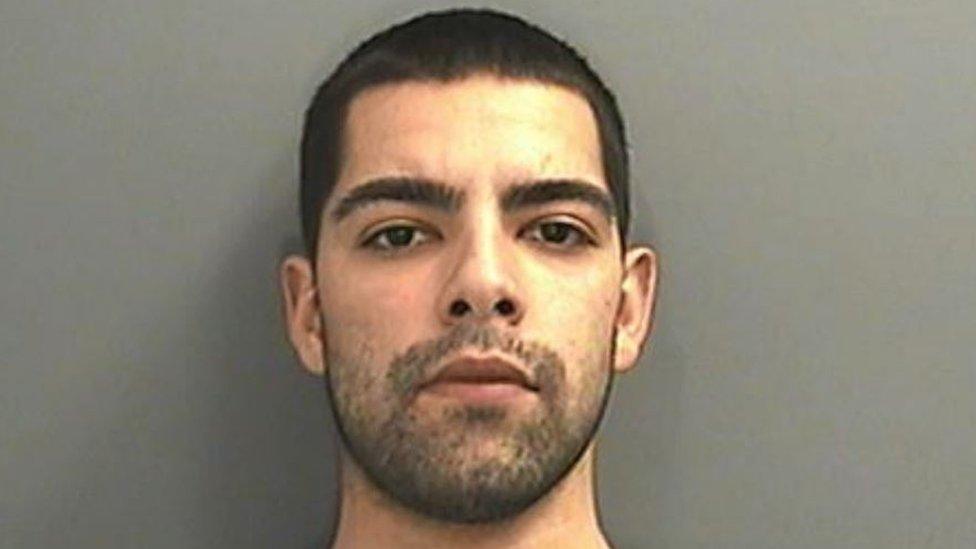
- Published9 May 2019

- Published8 May 2019
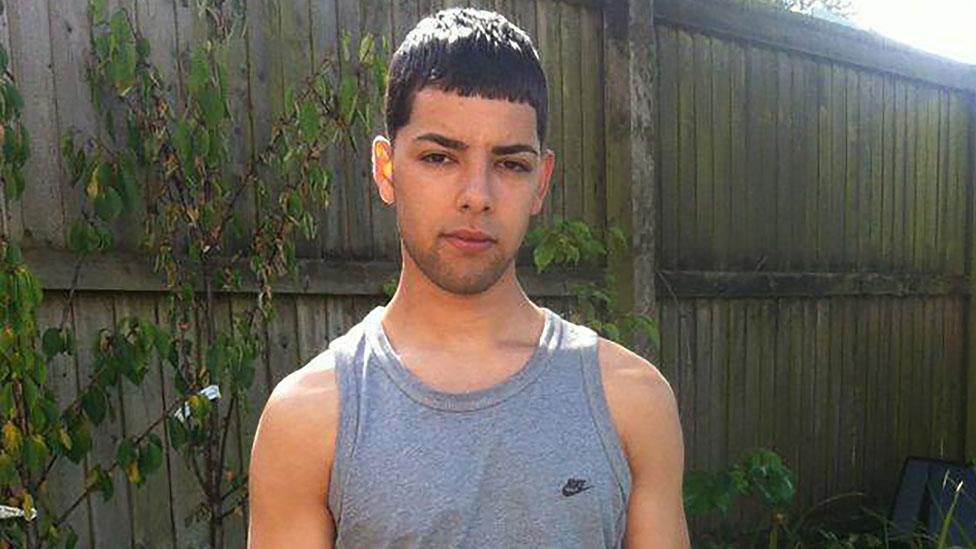
- Published3 December 2018
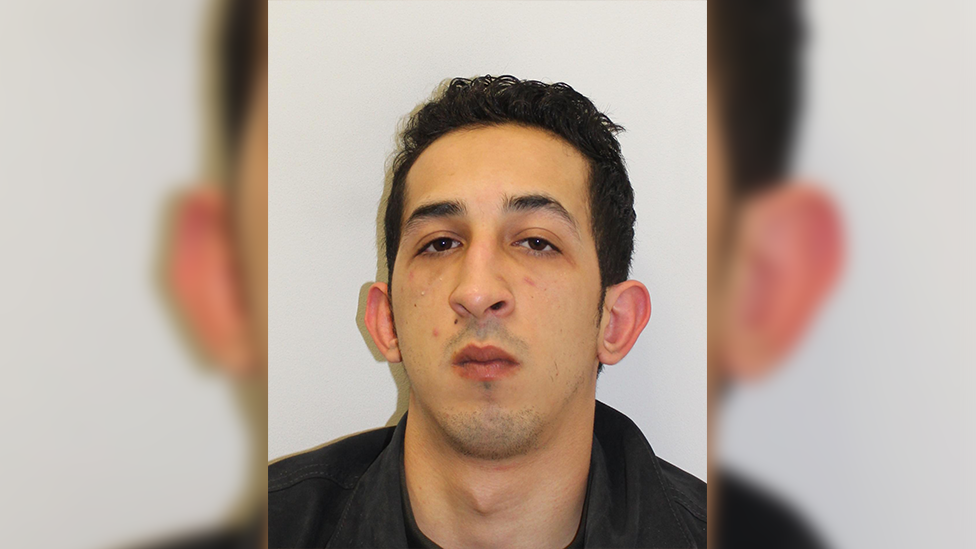
- Published1 December 2018
